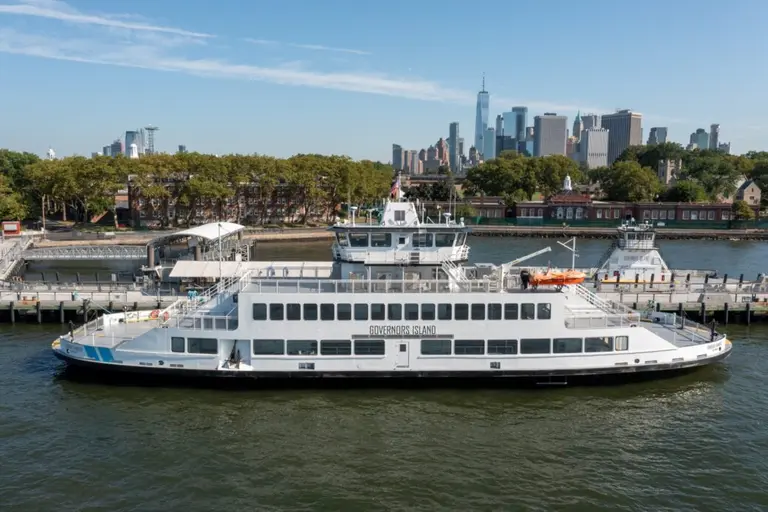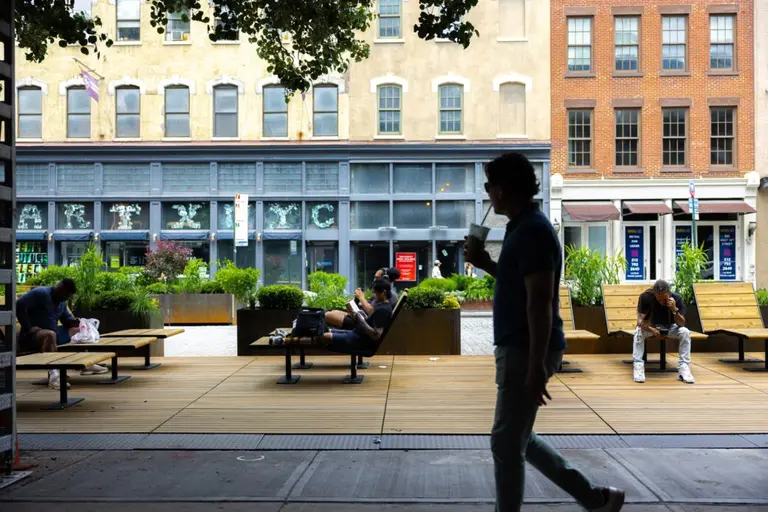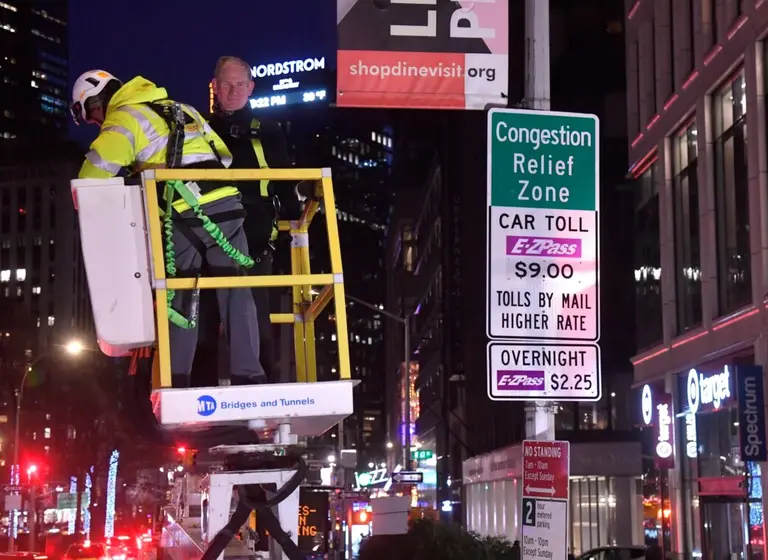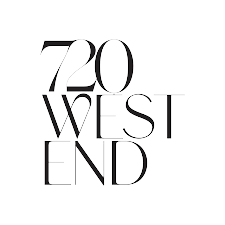Second Avenue Subway work resumes after Hochul allocates $54M
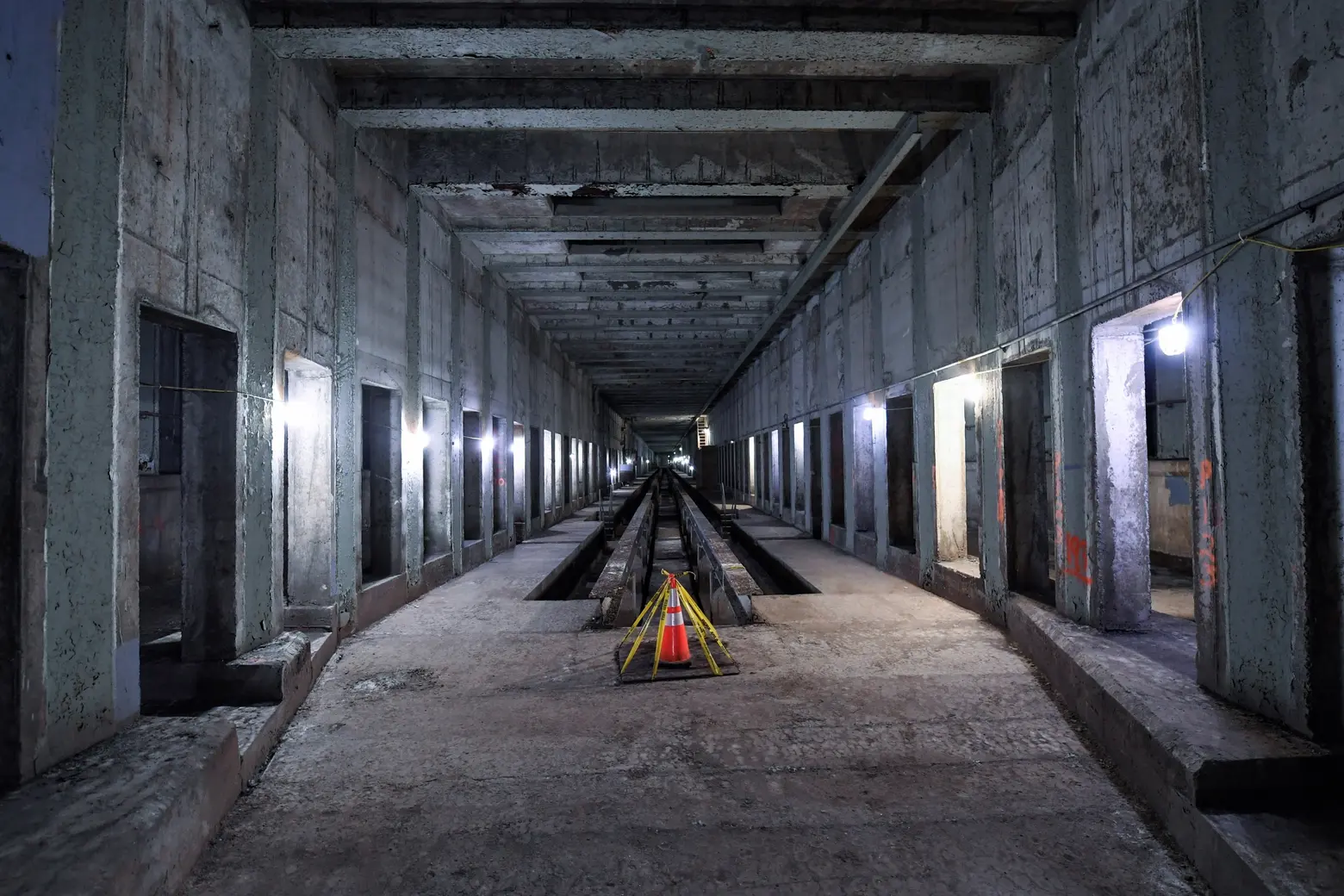
Credit: Marc A. Hermann / MTA on Flickr
Gov. Kathy Hochul on Tuesday allocated $54 million to immediately restart work on the Second Avenue Subway extension, which will bring the Q train from 96th Street to 125th Street in East Harlem. The new funding allows the Metropolitan Transportation Authority to relocate utility lines along Second Avenue in preparation for the next phase of the transit project. The MTA stopped work on the project last month after the governor indefinitely paused the start of congestion pricing; the $1 billion in projected annual revenue from the program was intended to fund the project.
Phase two will extend Q train service from 96th Street north on Second Avenue to 125th Street and then west on 125th Street to Park Avenue, spanning roughly 1.5 miles. The project includes three new stations at 106th Street, 116th Street, and 125th Street, as well as a direct connection to the existing 125th Street station on the Lexington Avenue subway line.
The $54 million in funds will be allocated for “contract 1” for phase two of the extension. Restarting the work helps the MTA keep the $3.4 billion federal grant for the project that required local investment.
The $7.7 billion project is decades in the making, poised to deliver subway access to an area that has been a subway desert ever since the Second Avenue El stopped service above 57th Street in 1940, according to the MTA.
“I have been committed to the Second Avenue Subway since the day I took office, and we will deliver this project for the people of East Harlem and the millions of riders who will use it every day,” Hochul said in a statement.
“When I announced the pause on implementing congestion pricing, I directed my team to think creatively about how to keep these generational investments moving forward. Now, we are committing the funds needed to continue the utility relocation contract, the first step to building this transformational project to meet the needs of everyday New Yorkers.”
In 2017, after a decade of construction, the first phase finally opened, extending the Q from 63rd Street to 96th Street with new stations at 72nd Street and 86th Street.
The Second Avenue Subway extension is expected to serve roughly 300,000 riders daily, reduce crowding on the 4, 5, 6, and Q subway lines and local bus service, and lead to shorter commute times, saving some passengers as much as 20 minutes. The line will also offer commuters from NYC’s northern suburbs and Connecticut an easy transfer to the Metro-North Railroad.
On June 5, Hochul abruptly paused the start of congestion pricing, which was scheduled to begin on June 30. The program–which would have charged drivers $15 for entering Manhattan south of 60th Street–was projected to generate $1 billion annually in revenue for the MTA to be put towards transit improvement projects, in addition to reducing car traffic and improving air quality and street safety.
The governor’s last-minute decision could severely impact the transit agency’s ability to finish numerous improvement projects that rely on the anticipated $15 billion in revenue from the tolling program. The roughly $16.5 billion improvements include accessibility upgrades, signal enhancements, new railcars and electric buses, and projects like the Second Avenue Subway extension.
The MTA had just secured its first contract for the subway extension in July 2023, before it was forced to halt work last month due to the delay of congestion pricing.
Last week, a coalition of local advocacy groups and lawyers filed two lawsuits against Gov. Kathy Hochul over the congestion pricing pause, claiming she didn’t have the legal authority to halt the tolling program.
RELATED:





